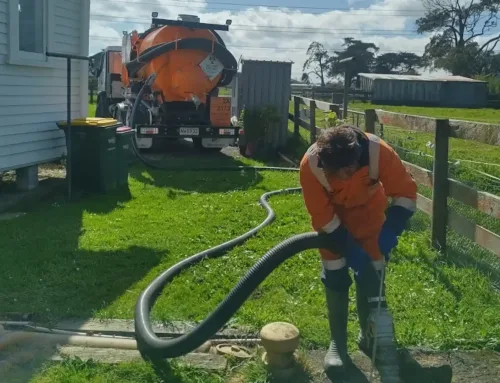Reclaim Waste - An Overview
Some Ideas on Reclaim Waste You Should Know
Table of ContentsReclaim Waste for BeginnersThe Greatest Guide To Reclaim WasteIndicators on Reclaim Waste You Should KnowSome Of Reclaim Waste6 Simple Techniques For Reclaim Waste
Residential sewer waste refers to the waste and products from a residential septic storage tank. The correct administration and disposal of residential sewage waste call for liquid waste to be transferred to a sewer treatment plant where the proper approaches and devices are applied to purify and dispose of waste.
Business waste commonly consists of potential risks, such as combustible materials or a mix of fluid and solid waste items, and needs an advanced and in-depth disposal procedure. The disposal of commercial waste typically includes the filtering of waste prior to transport to ensure risk-free and correct disposal. Hazardous waste is produced from results and runoff of industrial procedures and manufacturing.
This type of waste can not make use of the exact same sewage administration transport or procedures as septic or business fluids. The hazardous waste monitoring process requires the assessment and screening of fluid waste prior to it undergoes the disposal procedure (liquid waste removal). Overflow waste is the fluid waste that comes from overflow and excess stormwater in highly populated areas or cities
Overflow waste can trigger contamination and flooding if not managed appropriately. Guaranteeing proper waste monitoring can protect against catastrophes and decrease ecological damage.
9 Simple Techniques For Reclaim Waste
Get in touch with PROS Services today to learn concerning our waste monitoring and disposal solutions and the appropriate ways to look after the fluid waste you create.
(https://www.behance.net/leonaube)Do you recognize what takes place to your water when you pull the plug, flush the commode or drain the cleaning maker? No? Well, it's worth recognizing. This so-called 'wastewater' is not just a crucial resource yet, after treatment, will certainly be released to our land, rivers or the ocean. Made use of water from bathrooms, showers, baths, kitchen area sinks, laundries and commercial procedures is referred to as wastewater.

water used to cool down machinery or clean plant and tools). Stormwater, a form of wastewater, is overflow that moves from agricultural and city areas such as roofing systems, parks, yards, roads, paths and seamless gutters into stormwater drains, after rain. Stormwater flows untreated directly to neighborhood creeks or rivers, eventually reaching the sea.
Some Known Questions About Reclaim Waste.
In Queensland, the majority of wastewater is dealt with at sewer treatment plants. Wastewater is delivered from residential or industrial websites via a system of drains and pump stations, understood as sewage reticulation, to a sewer treatment plant. Regional federal governments develop, maintain and operate most sewer treatment plants. Operators are certified under the Environmental Management Act 1994 to release cured wastewater at an appropriate ecological standard right into rivers.
The Division of Natural Resources advises city governments concerning handling, operating and preserving sewerage systems and therapy plants. In unsewered locations, local governments may need householders to set up specific or house sewer therapy systems to deal with residential wastewater from toilets, cooking areas, restrooms and washings. The Department of Natural Resources authorises making use of household systems when they are confirmed to be effective.
Most stormwater obtains no treatment. In some brand-new communities, treatment of some stormwater to eliminate trash, sand and gravel has begun using gross toxin traps. Wastewater therapy happens in four phases: Eliminates strong issue. Larger solids, such as plastics and various other things wrongly discharged to drains, are eliminated when wastewater is gone through displays.
Makes use of small living microorganisms knows as micro-organisms to break down and get rid of remaining liquified wastes and great fragments. Micro-organisms and wastes are integrated in the sludge.
Top Guidelines Of Reclaim Waste
Nutrient elimination is not readily available at all sewer therapy plants since it needs expensive specialised equipment. Clear fluid effluent generated after treatment might still consist of disease-causing micro-organisms - industrial wastewater treatment.

This usually implies wastewater needs to be treated or contaminants eliminated prior to it can be discharged to waterways. A lot of wastewater flows into the sewage system. Under the Act, city governments provide authorizations and licences for eco pertinent activities (ERAs) involving wastewater launches that could have a local effect. The department provides approvals and licences to Ages entailing wastewater releases that may have a regional or statewide impact.
The 15-Second Trick For Reclaim Waste
Surveillance supplies factual info regarding this content water top quality and can validate that permit problems are being fulfilled. The info obtained via surveillance provides the basis for making water quality decisions.